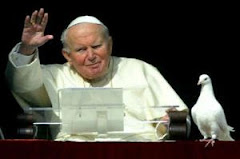 Presidente Obama hace historia con visita a tumba de Monseñor Romero
Presidente Obama hace historia con visita a tumba de Monseñor Romero El Presidente de Estados Unidos, Barack Obama, cierra sus ojos ante el sepulcro de Monseñor Oscar Arnulfo Romero, en señal de reverencia, acompañado por el Arzobispo de San Salvador, José Luis Escobar Alas.
Gabriela Castellón Fajardo
Redacción Diario Co Latino
A las 2:30 de la tarde de este martes 22 de marzo, las calles aledañas a la Catedral Metropolitana están cerradas. El Presidente de los Estados Unidos de América, Barack Obama, llegaría a las 5 p.m., para realizar el recorrido ya previsto en la agenda. Pero, aunque nadie lo sabe aún, la llegada del mandatario será a las 6:25 p.m. Esta tarde, Obama hará historia.
Luego de la reunión sostenida entre el mandatario estadounidense y el Presidente de la República, Mauricio Funes, se confirmó la visita que realizaría Obama, para conocer la cripta donde yacen los restos del arzobispo mártir, Monseñor Óscar Arnulfo Romero. Funes le agradece de antemano, por haber aceptado la invitación.
Son las 3 p.m. y frente a Catedral sólo está el grupo de periodistas que ingresarán a distintos puntos incluidos en el recorrido. En el centro de San Salvador hace calor, hay brisa y no hay vendedores.
Yo quería ver, dice Julia, en tono de queja. Ella, hasta hace unos minutos, estaba ofreciendo atol a todo el que pasaba cerca de su puesto. Sin embargo, se tiene que largar. Porque, sin autorización, nadie puede estar aquí, anuncia un agente de seguridad.
El presidente Obama incluyó en su agenda la visita a la efigie de Monseñor Romero en Catedral, como muestra de reconocimiento a la labor humana que impulsó, y por la que murió, el arzobispo.
A las cinco de la tarde, los periodistas esperaban en los puntos asignados. Antes, los encargados de la seguridad del mandatario estadounidense habían hecho su trabajo. Una revisión exhaustiva y al detalle. Con lista en mano, para evitar a algún colado.
Cuatro encargados de seguridad reciben al grupo que ingresa al lugar donde reposa Monseñor Romero. Vigilan, esperan a que Obama haga su llegada.
Hay helicópteros sobrevolando el centro. El presidente estadounidense está por llegar. Han pasado 30 minutos. Son las 6:25 p.m. y Obama ingresa por el portón poniente. Minutos antes, Funes había ingresado por la entrada principal.
Monseñor José Luis Escobar Alas y el presidente Funes le reciben. Escobar Alas inicia la explicación que expone la historia de Catedral. A los tres les acompañan el Secretario Privado de la Presidencia, Francisco Cáceres, y el Subsecretario de Asuntos Hemisféricos, Arturo Valenzuela.
Luego de la exposición sobre las pinturas y la arquitectura del lugar, Funes, Obama y el Arzobispo bajan. Se dirigen a la cripta.
Son las 6:37 p.m. y un grupo de al menos 18 periodistas extranjeros bajan corriendo las gradas. Obama está por entrar. Tres minutos después, hace su entrada.
El arzobispo de San Salvador explica la historia de Monseñor Romero. Mientras, una de las dos traductoras que están con Obama se pasea de un lado a otro, traduciendo frase por frase. Funes observa. Los periodistas callan. Los vigilantes siguen pendientes del movimiento. El sonido de los flashes se repite y parece que no fuera a terminar nunca.
Entonces, llega el momento. Escobar Alas termina su exposición. Obama guarda silencio y cierra sus ojos, frente a la efigie de Monseñor Romero. Mantiene el gesto treinta segundos. El sonido de los flashes aumenta.
Funes le explica a Obama lo que significa Romero para el pueblo salvadoreño. Además, le cuenta que, por primera vez, el Gobierno ha pedido perdón por todas las atrocidades ocurridas en la guerra.
Minutos después, el presidente salvadoreño le anuncia a su homólogo que le hará la entrega de una de las 25 réplicas del mural que se encuentra en el Aeropuerto Internacional, que fue pintado por el artista Rafael Varela, en honor al 30 aniversario del martirio del arzobispo mártir. Este miércoles se cumplen 31 años del asesinato de San Romero de América”.
El presidente estadounidense agradece, y Escobar Alas explica la pieza. Obama se lleva la número 17. Pero el funcionario no se lleva sólo la pintura. Mientras estaban en la parte superior de Catedral, Escobar Alas le entregó el libro Romero, hombre, sacerdote y pastor, escrito por monseñor Jesús Delgado, ex párroco de Catedral y persona a cargo de la postulación de la beatificación de Romero en el Vaticano. Regresan la pintura al tubo donde estaba enrollada. Los tres se aprestan a encender una vela, para honrar los restos del Obispo Romero. Primero lo hace Obama, luego Funes. Escobar Alas enciende la última. Se retiran luego de 15 minutos, en el mismo orden. Un minuto después, los periodistas extranjeros salen corriendo del lugar. Obama ha hecho historia. No dijo nada. Su pensamiento no será expuesto en los medios de comunicación.
Sin embargo, el miércoles 23 de marzo, periódicos de diversos países del mundo tendrán la noticia: Obama visitó tumba de Monseñor Romero. México, Nicaragua, Argentina, Estados Unidos, Guatemala, Honduras, Venezuela y El Salvador fueron de los primeros medios en publicarlo. El nombre de Barack Obama y el de Monseñor Óscar Arnulfo Romero, juntos, ahora son parte de la historia.










